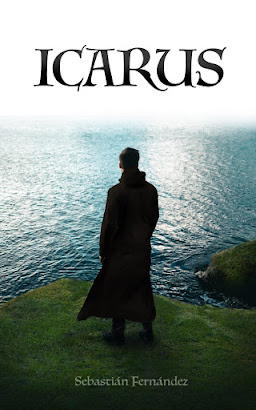13 Reasons Why - A Necessary Reading
"Clay Jensen returns home from school to find a strange package with his name on it lying on his porch. Inside he discovers several cassette tapes recorded by Hannah Baker–his classmate and crush–who committed suicide two weeks earlier. Hannah’s voice tells him that there are thirteen reasons why she decided to end her life. Clay is one of them. If he listens, he’ll find out why.
Clay spends the night crisscrossing his town with Hannah as his guide. He becomes a firsthand witness to Hannah’s pain, and as he follows Hannah’s recorded words throughout his town, what he discovers changes his life forever."

Start listening to "The Night We Met".
Raise your hand if you found out the existence of this book after watching the Netflix TV show, I'm raising mine now. Just like the show, this book has a ton of controversy because of the sensitive topics that it covers. But, is 13 Reasons Why a book that deserves to be banned from our bookshelves or one that needs to be there?
Leaving behind—for now—the themes, the novel is very easy and fast to read despite being almost 300 pages long. The vocabulary is not difficult at all, and the story catches your attention right from the beginning. Something interesting I found is that readers find themselves in the same position as Clay—the listener. Why? Because both readers and the character read/listen to Hannah's story, and both are completely unaware of the circumstances that led her to take such a decision. I believe that's an extraordinary strategy because it is one of the ways that you empathize with Clay, by reading and learning what he's listening to. Why do I consider it important to empathize with the main character? Because if you don't like it, how will you like the book?
Moving on to the controversial part... the book treats matters such as bullying, mental health, depression, sexual abuse, and suicide. So, as you may notice these are pretty delicate topics to discuss, and that's the reason why a myriad of people argue that the book somehow justifies suicide. In my opinion, such a claim is erroneous and the book's intention is the exact opposite. The subjects are not subtle or implied, they are explicitly portrayed, which may be difficult to read for some people. However, what the author wants us to consider is how our actions—even if we consider them insignificant, such as gossip—affect a person, and how the summation of all those "small" acts could end up in serious consequences. Mr. Jay Asher accurately compares the situation to a tiny snowball that keeps getting bigger and bigger until it becomes an enormous and unstoppable ball. The book itself is a call to stop bullying, to take care of others' mental health and ours, to stop ignoring signs, and to take action. For how long has mental health been underestimated?
Nevertheless, the book's ending delivers a message of hope, understanding, and empathy. It teaches us that there is light at the end of the tunnel, and it reminds us to take care of the surrounding people.


I said earlier that reading through Clay's eyes is a way that the author uses to relate us to the character. Is there another one? Yes, the metaphor that, in a sense, Clay Jensen represents all of us.
Now, I'm going to quickly talk about the first season of the show since that's the season based on the book. Unlike the text, the TV adaptation puts its focus on the secondary characters, who are Hannah's reasons, and we get to learn their versions of the story. Also, Hannah and Clay's relationship is stronger here, so her death and subsequent testimonies have a bigger impact on Clay. Remember what I said in my last review about books and its adaptations? This story is an exception to that rule, I actually prefer the show (again, the first season) over the book.
Finally, although it covers sensitive topics, 13 Reasons Why is a book that intends to call for a change when treating people and to reflect on how deep our actions impact others. Despite not being a book for everyone due to its themes, it does not normalize or defend suicide in any way.
Score: 4/5
Favorite Quote: "I guess that's the point of it all. No one knows for certain how much impact they have on the lives of other people. Oftentimes, we have no clue. Yet we push it just the same."

Comments
Post a Comment